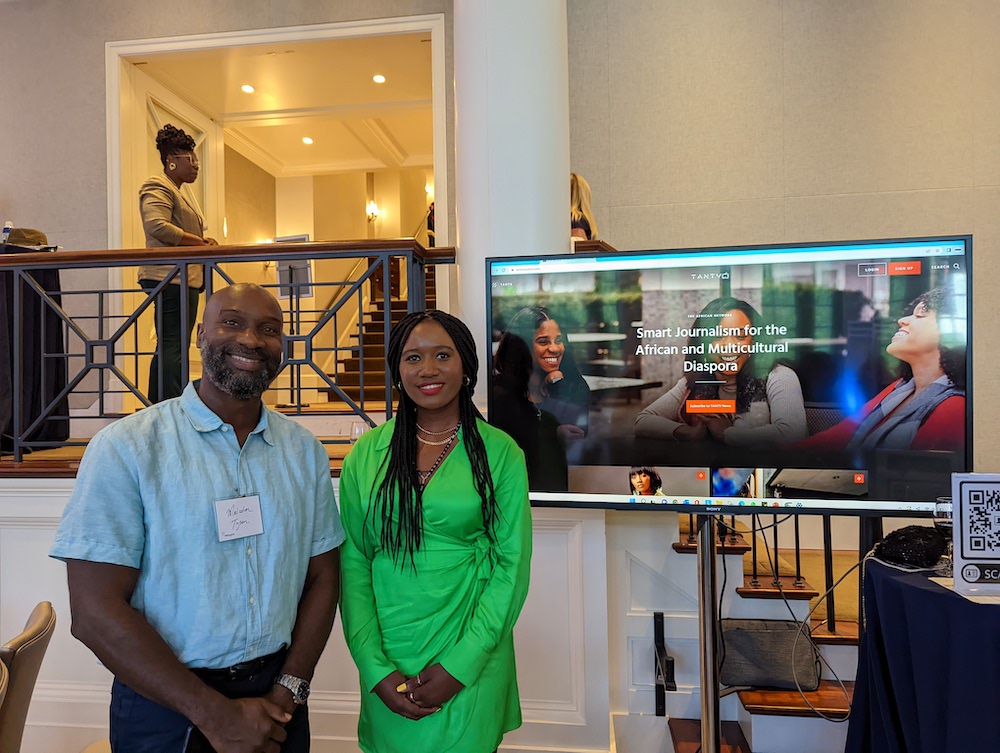Malcolm Tyson was building an innovation hub for the College of Southern Maryland while simultaneously operating his own consulting practice to provide mentorship for small and medium-sized businesses. But it still wasn’t enough; that’s when he found out about mentor opportunities at TEDCO. He signed on as an adviser in Prince George’s County for TEDCO’s UBII program last July.
“It’s really rewarding to know that I’m in this space, to know that I can help them not get discouraged when their peers or colleagues that they work with and have known are getting funding for their programs and they’re not Black,” Tyson said.
Getting started
TEDCO CEO Troy LeMaile-Stovall launched the program when he officially took his position in September 2020. As part of his work with the initiative, UBII mentors work with a variety of businesses at a variety of stages, regardless of whether the business is still in the idea phase or looking to obtain funding. Through this process, UBII mentors help to counsel founders about issues within their organizations and connect them with the proper resources to remedy those problems.
TEDCO also collaborates with the Prince George’s County Economic Development Corporation (EDC) to offer UBII access to as many founders in the region as possible.
The EDC aims to increase the county’s commercial tax industry and attract businesses that will provide jobs for residents. This program could thus provide a massive financial boost for founders of color and female entrepreneurs within the region.
“For minority founders that don’t receive the same level of attention that other businesses may receive, programs like this are really critical to assist them with expanding their business,” said Ebony Stocks, executive vice president of the EDC. “This helps to build an ecosystem of innovative companies when you have the resources that are readily available.”
Lending a hand
Living Canopies Founder and CEO David Tilley said his company first became involved with TEDCO in 2016 when it joined the Maryland Innovation Initiative (MII), a program that funds commercialization of technology coming from university-based research.
Living Canopies offers “living umbrellas,” meaning canopies consisting of Mandevilla flowers and vines. The use of edible flowers, instead of an old-fashioned canopy or patio umbrella, both allows for cooler shade and combats “urban heat island effect” — when an influx of human activity causes urban areas to experience warmer temperatures. It provides this product for restaurants, homes, and urban spaces.
Following the murder of George Floyd in 2020, Tilley and his team decided to shift their focus toward creating a product that would assist the disenfranchised. Tilley contacted TEDCO’s UBII program in September, looking for help refining his go-to-market strategy for the company’s upcoming new product and got in touch with Tyson.
According to recent data, less than one-fifth of more than 122,000 bus stops in the country have shelters. So Living Canopies created the “cool green shelter,” which is essentially a larger version of the living umbrella that’s designed to protect from the elements at bus stops.
Working with UBII, Tilley received help building a marketing strategy for the shelters, evaluating and building successful revenue models, and networking with individuals throughout the industry.
When asked about the UBII program, Tilley explained, “They’re critical to all the success that I’m having. We wouldn’t be where we are today without them.”
Kinetic Potential (KP), another company that benefited from UBII support, offers the KP Life platform. This product uses a vast framework of factors to help people find the profession that best matches their skills.
Founder and CEO Jim Smith, who has been involved with TEDCO since 2006, used the UBII while searching for new ways to scale his business and attract jobseekers. KP supported Gov. Larry Hogan’s first-in-the-nation workforce development initiative that launched in March 2022 and eliminated the requirement of a four-year degree for thousands of jobs within the state.
“Beyond the funding that TEDCO can make available, there’s so much more that they do,” Smith said. “Their investment of time and resources in me allows me to impact the broader Maryland ecosystem with jobs.”
Likewise, Tyson believes the UBII program has more to offer in Prince George’s County. And with people of color comprising more than 60% of the county’s population of nearly 1 million people, there’s no shortage of potential in the region. He argues that the county is brimming with entrepreneurial talent, but minority founders are simply overlooked.
“There’s a lot of really smart people, but I think because they are minorities, they don’t get the consideration that others might get,” Tyson said. “While they may have the talent and all the ideas, they just don’t know how to get support for it.”
Where we go from here
Moving forward, he hopes the UBII inspires entrepreneurs to reconsider and look into the opportunities that programs like this can offer. Still, trusting an adviser with information about their companies’ inner workings can be a difficult hurdle for many minority investors. That’s why UBII mentors make sure to build more than just a business relationship with their mentees.
“There’s mistrust among minority communities about these types of agencies because there’s not a published investment logic,” Tyson said. “By being present, the walls come down a bit and I can talk to people on a personal level.”
And as founders in the region keep growing their businesses, organizations and investors around Maryland could use UBII as a blueprint of how to effectively uplift swaths of minority founders across the state.
“If there were more programs like [this] and investors were really serious about investing in minority businesses, we’d see an explosion of growth,” Stocks said. “The businesses are here, but it’s really about connecting them with investors and investors being willing to invest in and support businesses that they may not traditionally.”







